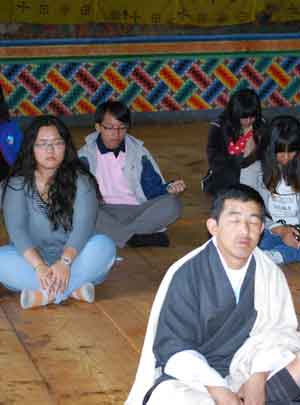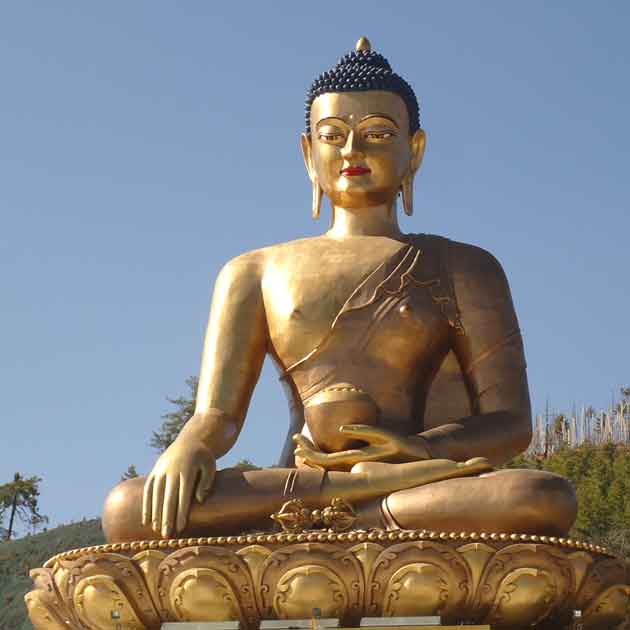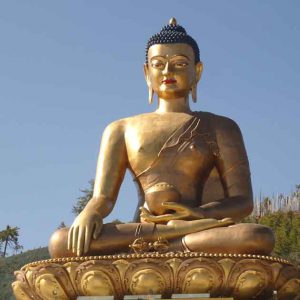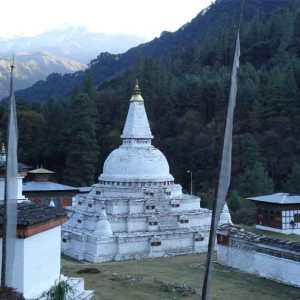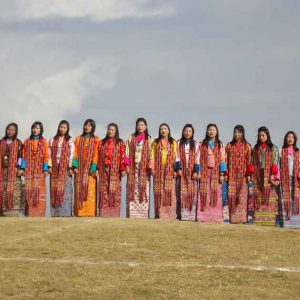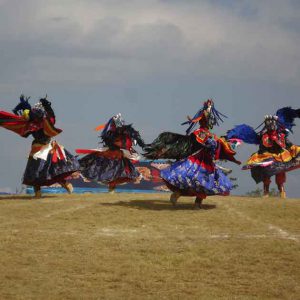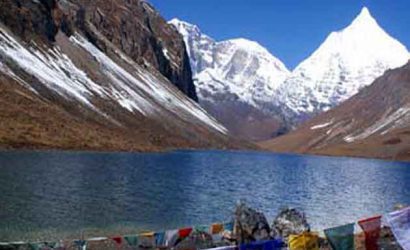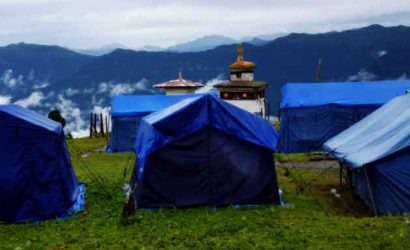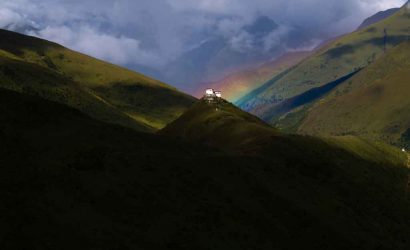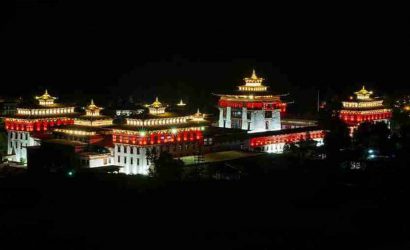The tiny Kingdom of Bhutan, tucked in the Himalayas between China on the north and India on the south is known for its innovative GNH Gross National Happiness development policy that increases the well-being of its people. In Bhutan, GNH Gross National Happiness is more important than GNP Gross National Product.
Guru Rinpoche (Precious Master) is one of the most important of Bhutan’s historical and religious figures and his visit to Bumthang in AD 746 is recognized as the true introduction of Buddhism to Bhutan.
Bhutan is one of the smallest, but fastest-growing economies in the world. Bhutan’s economy is largely based on agriculture, forestry and hydro-power & tourism. Until the 1950s, the only education available in Bhutan was from monasteries. While still monastic education continues to play an important role but western style education is expanded and now available throughout the country. Access to basic education has become the inalienable right of all Bhutanese and it is the key to the most of the nation’s ambitions. The Kingdom has made great efforts to improve health facilities and provides a free health care to all its citizens. While Bhutan is one of the smallest countries in the world, its cultural diversity and richness are profound. While Bhutan is one of the smallest countries in the world, its cultural diversity and richness are profound. As such, strong emphasis is laid on the promotion and preservation of its unique culture. By protecting and nurturing Bhutan’s living culture it is believed that it will help guard the sovereignty of the nation.







